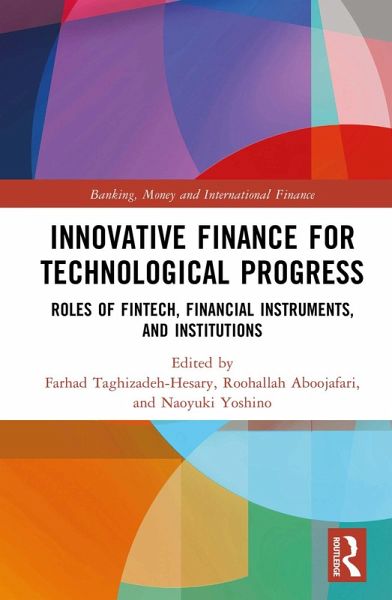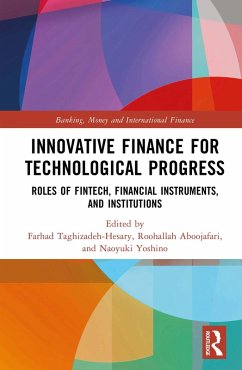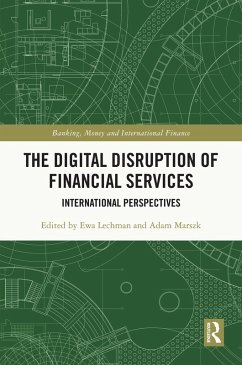
Innovative Finance for Technological Progress (eBook, ePUB)
Roles of Fintech, Financial Instruments, and Institutions
Redaktion: Taghizadeh-Hesary, Farhad; Yoshino, Naoyuki; Aboojafari, Roohallah
Versandkostenfrei!
Sofort per Download lieferbar
39,95 €
inkl. MwSt.
Weitere Ausgaben:

PAYBACK Punkte
20 °P sammeln!
Innovative businesses and startups contribute to job creation, economic growth, and technological advancement in most countries. Finance helps nurture innovative firms like startups. Unfortunately, most startups and innovative projects cannot secure finance through the usual and conventional methods.This book goes beyond traditional financing to explore innovative ways to help finance startups and novel businesses. The book covers institutional innovation, innovation in products and processes, and the recent progress in financial innovations in various countries through empirical and case stud...
Innovative businesses and startups contribute to job creation, economic growth, and technological advancement in most countries. Finance helps nurture innovative firms like startups. Unfortunately, most startups and innovative projects cannot secure finance through the usual and conventional methods.
This book goes beyond traditional financing to explore innovative ways to help finance startups and novel businesses. The book covers institutional innovation, innovation in products and processes, and the recent progress in financial innovations in various countries through empirical and case studies. It gives an in-depth look at regulatory, policy frameworks, and risk assessments for financial innovations. It also assesses the role of various innovations, including Fintech, machine learning, big data, scoring models, credit databases, digital platforms, credit guarantees in funding startups, and novel technologies.
This book offers valuable insights into how policymakers can nurture a more conducive ecosystem for startups and technologies through innovative finance.
This book goes beyond traditional financing to explore innovative ways to help finance startups and novel businesses. The book covers institutional innovation, innovation in products and processes, and the recent progress in financial innovations in various countries through empirical and case studies. It gives an in-depth look at regulatory, policy frameworks, and risk assessments for financial innovations. It also assesses the role of various innovations, including Fintech, machine learning, big data, scoring models, credit databases, digital platforms, credit guarantees in funding startups, and novel technologies.
This book offers valuable insights into how policymakers can nurture a more conducive ecosystem for startups and technologies through innovative finance.
Dieser Download kann aus rechtlichen Gründen nur mit Rechnungsadresse in A, B, BG, CY, CZ, D, DK, EW, E, FIN, F, GR, HR, H, IRL, I, LT, L, LR, M, NL, PL, P, R, S, SLO, SK ausgeliefert werden.













